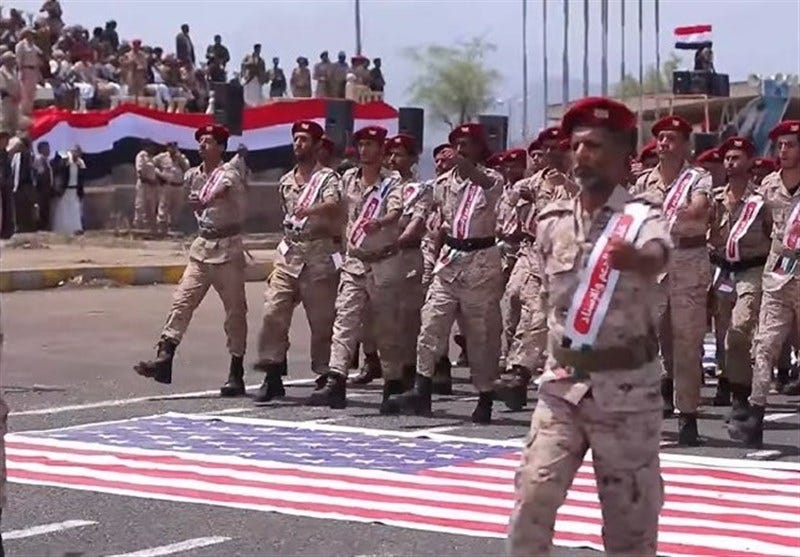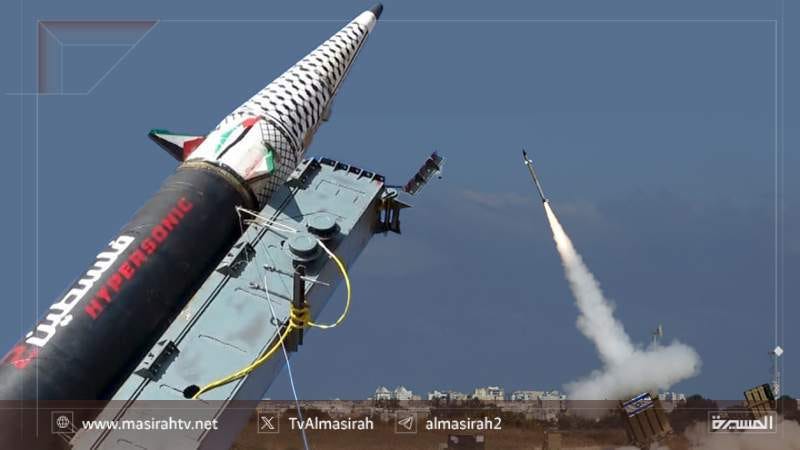Intelligence Blindness! Why Israel’s Assassinations in Yemen Keep Failing
Repeated failures to assassinate Yemeni leaders expose Israel’s deep intelligence shortcomings, from geographic and cultural barriers to underestimating Yemen’s military capabilities.
Yemen, PUREWILAYAH.COM - Yemen is just one example of the occupying regime’s intelligence failures, exposing the extent of Israel’s crisis and operational blindness.
The repeated failures of the Zionist regime to assassinate senior Yemeni leaders and commanders—most recently in Thursday’s botched operation to kill Major General Mohammed Abdul Karim al-Ghamari, Chief of Staff of Yemen’s Armed Forces—demonstrate that the occupiers are facing a major intelligence challenge in the Yemeni theater, one that prevents them from achieving their objectives in the country.
Failed Assassination Attempt in Sanaa
For the first time, the Israeli regime openly admitted that its bombing of the Yemeni capital, Sanaa, was carried out with the aim of assassinating senior military commanders of the Ansar Allah movement.
Initially, Israel’s Army Radio claimed the assassination had been successful, alleging that it had targeted the location of a meeting attended by several Yemeni military commanders and political leaders. It specifically claimed that Major General Abdul Karim al-Ghamari was present at the meeting and was among those targeted.
Israeli media further alleged that the army simultaneously targeted a meeting of senior Yemeni military officials, including Defense Minister Major General Mohammed al-Atifi and al-Ghamari.
These claims were swiftly refuted by Yemeni officials. Mahdi al-Mashat, President of Yemen’s Supreme Political Council, declared in a statement that the Zionist attacks had failed and would continue to fail.
He vowed that Yemen’s long reach would teach Israel the necessary lessons, warning that Netanyahu’s crimes were dragging the regime toward its own destruction.
Addressing Netanyahu directly, al-Mashat said:
“You have engaged in a confrontation with a nation that you are no match for. We have thwarted your plots, and your attacks will not harm even a single hair on the head of our smallest child.”
The Roots of Israel’s Intelligence Crisis in Yemen
This growing intelligence crisis reveals deep weaknesses in Israel’s spy services—from geographic constraints and overreliance on Arab and Western allies to military surprises, economic strain, weak deterrence, and strategic shortcomings. The main features of this crisis can be summarized as follows:
1. Geographic and Operational Disadvantages
One of Israel’s primary intelligence weaknesses in Yemen stems from the geographic nature of the power base in Sanaa. Yemen is far from areas under Israel’s direct surveillance, such as Lebanon, Syria, and Gaza.
Given that the regime had not previously considered Yemen a major threat—and had made limited intelligence efforts there—its spy services and their Western and Arab backers lack extensive human intelligence networks inside Yemen. Any human infiltration into the Yemeni front requires prolonged, in-depth effort and immense capabilities.
The mountainous terrain of northern Yemen provides natural cover for the country’s armed forces, significantly reducing the effectiveness of satellite imagery and aerial surveillance.
Israel’s intelligence apparatus, heavily reliant on technical means such as signals intelligence, satellite imagery, and drones, struggles to detect the covert movements of Yemeni forces through valleys, caves, tunnels, and rugged landscapes.
This terrain poses challenges similar to those Israel has faced with Hezbollah in southern Lebanon—but in Yemen, the difficulty is far greater.
Consequently, Israel has been forced to rely heavily on its American and Arab partners for information. Yet even they suffer from severe intelligence weaknesses against Yemen, with the U.S. having lost multiple MQ-9 drones in Yemeni airspace during intelligence operations.
2. Underestimating Yemen’s Technological Capabilities
Like other U.S. allies and proxies in the region, Israel’s intelligence apparatus long underestimated Yemen’s military and industrial capabilities. It assumed that tightening the air and naval blockade would halt Yemen’s development.
What the Zionists failed to grasp was that Ansar Allah had significantly advanced its domestic weapons production, making major strides in drone technology alongside innovative use of ballistic and hypersonic missiles.
Recently, even Israeli officials have admitted that Yemen has acquired cluster missiles—a development they had not anticipated.
These miscalculations carried strategic consequences. Israel assumed Yemen was incapable of carrying out operations beyond its borders, and thus did not anticipate direct strikes deep inside occupied Palestine—such as missile attacks on Tel Aviv and the crippling of Eilat Port—and was wholly unprepared for them.
3. Cultural and Linguistic Challenges
Human intelligence in any country requires deep cultural and linguistic expertise. While Israel has invested heavily over decades in Arabic linguists and cultural experts, most of this expertise has been focused on Syrian, Egyptian, and Palestinian contexts. Yemenis have a distinct dialect and culture, markedly different from other Arab nations.
This gap has recently prompted Israel’s Unit 8200 to begin training specialists in Yemeni dialect and customs.
Moreover, while the sectarian and fractured nature of many Arab societies has facilitated infiltration, Yemen’s cohesive tribal structure provides a significant advantage in resisting human intelligence penetration.
4. The Decentralized Nature of Ansar Allah
Israel’s intelligence doctrine typically targets hierarchical structures—penetrating senior leadership, the army command, or military communications can decisively weaken an adversary.
Ansar Allah’s decentralized and adaptive nature poses a nightmare for Israeli intelligence. Decision-making is not confined to a single operations room but is dispersed among tribal, religious, and military leaders. Thus, even if Israel were to infiltrate certain networks, others would remain fully operational and resilient.
Yemeni Vigilance
Given these factors and Israel’s repeated failures in assassination operations, Dr. Hazem al-Asad, a member of Ansar Allah’s Political Bureau, stated:
“The enemy’s repeated claims of targeting Yemeni leaders and military or political commanders reveal the extent of its failures—militarily, in intelligence, and morally.”
He added that Israel only targets civilian and service facilities or empty areas that have already been bombed multiple times, calling it a desperate attempt to fabricate a false victory and to dissuade the Yemeni people from their principled religious and humanitarian stance in support of Gaza.
Mohammed al-Muqaleh, a former member of Yemen’s Revolutionary Committee, likewise stressed that Israel remains blind in Yemen from an intelligence perspective, will continue to repeat its failed plots, and that Yemenis must remain alert and cautious. (PW)




